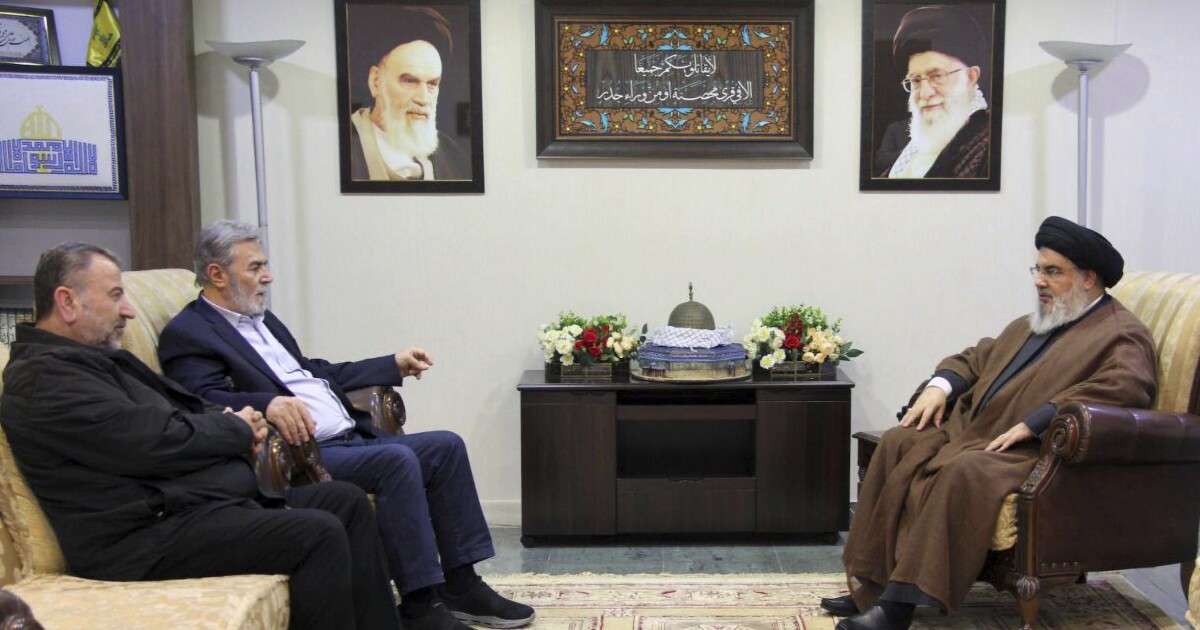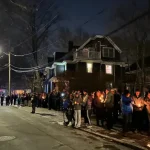

Various world leaders and institutions have raised their concerns that the presumed Israeli strike in a suburb of Beirut, Lebanon, that killed a top Hamas leader could escalate and expand the conflicts in the region.
Deputy leader Saleh al Arouri — who was allegedly responsible for leading multiple attacks on Israel and had ushered in a closer relationship between Hamas and Hezbollah, the Iranian-backed militia in Lebanon — was one of a handful of people killed in the Tuesday night strike.
JAPAN PLANE CRASH: AIRCRAFT ERUPTS IN FLAMES WITH 379 PEOPLE ON BOARD
His killing marked a possibly pivotal moment in the powder keg that is the Middle East. Israeli leaders have repeatedly said they would hunt down every Hamas leader responsible for the Oct. 7 attacks that left roughly 1,200 people dead, including those who do not reside within the Gaza Strip.
“We are deeply concerned at any potential for escalation that could have devastating consequences for people on both sides of the Blue Line,” United Nations Interim Force in Lebanon spokeswoman Kandice Ardiel told Lebanese state-run National News Agency on Wednesday.
Similarly, French President Emmanuel Macron told former Israeli Defense Minister Benny Gantz that it was “essential to avoid any escalatory attitude, particularly in Lebanon,” according to a readout of a call on Tuesday provided by French officials. Lebanese Foreign Minister Abdallah Bou Habib told the BBC that government officials are urging Hezbollah not to respond to Arouri’s killing.
Israel and Hezbollah have engaged in limited rocket fire and attacks in the northern part of Israel since the Oct. 7 attacks, though it’s unclear whether Arouri’s killing could be the event that escalates the tension into a more significant war. Israel has already evacuated tens of thousands of people who live in towns near the Israeli-Lebanese border.
Hassan Nasrallah, the head of Hezbollah, is set to speak on Wednesday to honor the anniversary of the U.S. assassination of Gen. Qassem Soleimani, an Iranian military leader who was killed in a U.S. strike in 2020, and it’s unclear how he’ll address the strike. He warned that “any assassination on Lebanese soil that targets a Lebanese, Palestinian, Syrian, Iranian or others will certainly have a strong reaction.”
David Daoud, a senior fellow at the Foundation for Defense of Democracies, told the Washington Examiner that he expects Nasrallah to “make some vague threats.” There could be a slight escalation in Hezbollah’s attacks, but Daoud is confident the Hezbollah leader won’t declare an all-out war against Israel.
“Will he declare war? I think that we can say for certain that he will not declare war. He will likely say either [Israel] will pay a heavy price, or maybe they have paid every price,” he said. “He may exaggerate Israeli casualties as they’ve done in the past and just kind of close the file, or he may say that we can expect more of a response. … I don’t think we can expect anything too dramatic.”
Thousands of people gathered to mourn the anniversary of Soleimani’s death when at least 103 people were killed and more were injured in two blasts that struck Kerman. It’s unclear who is responsible for the bombings.
CLICK HERE TO READ MORE FROM THE WASHINGTON EXAMINER
The conflict began with Hamas’s Oct. 7 terrorist attacks, the worst in Israel’s history. Militants crossed the border from Gaza into Israel and slaughtered men, women, and children, some of whom showed signs of being tortured and burned beyond recognition. Israeli leaders said their goals are to remove Hamas from power in the Gaza Strip, demilitarize it, and deradicalize it against Israel, as outlined recently by Israeli Prime Minister Benjamin Netanyahu.
Israel’s military campaign, which commenced in the aftermath of the Oct. 7 attacks, has resulted in overwhelming destruction and death in Gaza. More than 20,000 people have been killed in the roughly three months since, though it’s unclear what percentage of them are militants and how many are civilians.





